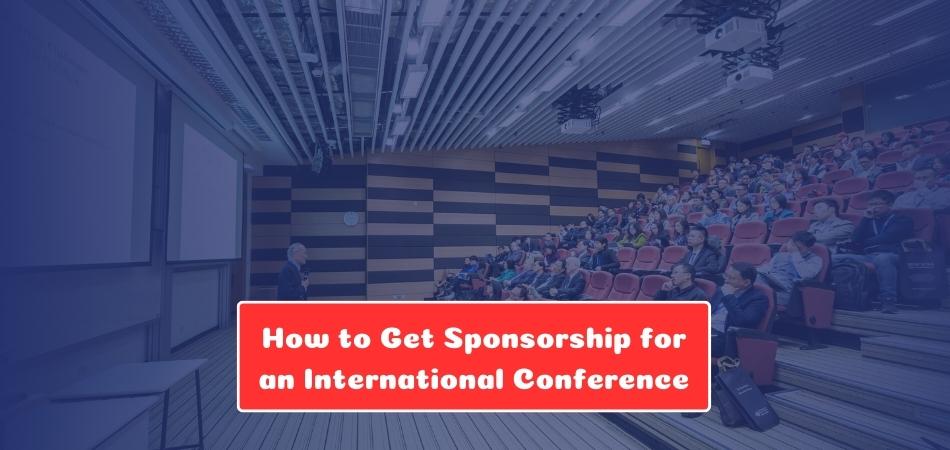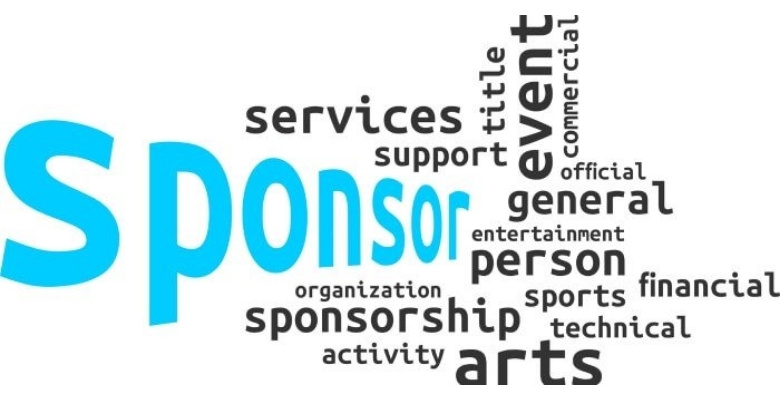Securing financial or organizational support can make attending or hosting a global event much easier. Many professionals and students search for guidance on how to get sponsorship for an international conference, as it can cover travel costs, registration fees, or even promotional support. With the right approach, sponsorship not only reduces expenses but also builds valuable connections.
Start by identifying potential sponsors whose goals align with your event or participation. Prepare a clear proposal that highlights benefits for the sponsor, such as visibility, networking opportunities, or brand promotion. Reaching out with professionalism and offering suitable packages increases your chances of success.
If you’re serious about finding sponsors who will back your international conference journey, this guide will walk you through practical steps. Keep reading to explore strategies, tips, and examples that will help you secure the right support and make your conference experience possible.
How to Get Sponsorship for an International Conference?
Bringing an international conference to life takes resources, and sponsorships are one of the best ways to make it happen. They not only reduce costs but also build credibility for your event. Let’s walk through the process step by step, with practical guidance you can follow.
Step 1: Identify the Right Sponsors
Look for companies or organizations that match your conference theme and audience. A tech company fits a cybersecurity event, while a hospital group might support healthcare conferences. The closer the alignment, the better the chances they’ll see real value in investing as a sponsor.
Step 2: Create a Strong Sponsorship Proposal
A proposal is your chance to show why sponsoring your event makes sense. It should include details like event overview, audience size, and sponsorship options. Keep it clear, visual, and concise while explaining how the sponsor’s brand will connect with attendees in meaningful ways.
Mini Template: Sponsorship Proposal Outline
- Event name, date, and venue
- Brief event summary
- Audience profile and expected numbers
- Sponsorship levels (Gold, Silver, Bronze, or custom)
- Benefits (branding, speaking slots, networking access)
- Contact details
Download the Detailed Version
Step 3: Build Flexible Sponsorship Packages
Offer different sponsorship levels so companies with varying budgets can participate. You don’t need to explain all the details here, just mention that sponsors can choose from tiered packages and custom add-ons. (Full package examples are shared later in this article.)
Step 4: Use Your Network First
Reach out to people you already know before contacting new prospects. Past conference sponsors, colleagues, or connections in the industry are often more open to discussions. Warm introductions feel more personal and trusted, which increases the likelihood of a positive response compared to cold outreach.
Step 5: Pitch With Confidence
When speaking to a potential sponsor, don’t just hand over a document—explain why your event matters to them. Highlight audience benefits, promotional opportunities, and industry relevance. Listen to their needs as well, so the conversation feels like a partnership rather than just a sales pitch.
Step 6: Be Ready to Negotiate
Most sponsors will want adjustments, maybe more visibility, extra speaking time, or a reduced fee. Approach negotiations with an open mind. Aim for a balanced agreement that meets their goals without compromising your event’s value. Good negotiation ensures both sides feel satisfied and respected.
Step 7: Seal the Agreement
Once terms are agreed, make sure everything is documented clearly in a written contract. The agreement should include benefits, deliverables, payment terms, and timelines. Having everything formalized avoids misunderstandings, sets expectations, and protects both the organizer and the sponsor as the event moves forward.
Step 8: Keep Sponsors in the Loop
After signing the deal, maintain regular communication. Share updates on event planning, audience registration, and marketing efforts. Post-event, provide a detailed report with results and feedback. This consistent communication builds trust and increases the likelihood of securing the sponsor’s support for future events.
Getting sponsorship isn’t just about funding; it’s about building lasting partnerships. By presenting clear proposals, offering flexible options, and communicating well, you make sponsors feel valued. The stronger the relationship you create today, the more likely you’ll have reliable support when organizing an international conference in Canada, the USA, or anywhere else in the world.
Why Sponsorship Matters for International Conferences?
Organizing a conference is never just about speakers and sessions; it’s about creating an experience that connects people across borders. Behind the scenes, conference sponsorship plays a big role in making this possible. Let’s take a closer look at why it matters today and what trends are forming it in 2025.
Global Reach
Sponsorship helps conferences expand their scale and connect with wider audiences. With the right partners, an event can attract participants from different countries, industries, and backgrounds. This reach gives the conference a truly international character, making it more valuable for both attendees and sponsors.
Building Credibility
When a respected brand attaches its name to a conference, it instantly raises trust. Attendees feel more confident about registering, and potential speakers see the event as a serious platform. Credible sponsors also bring recognition from outside audiences who may not yet know about the event.
Better Attendee Experience
Sponsorship funds allow organizers to provide improved venues, engaging speakers, and thoughtful extras like networking lounges or event apps. These touches create a smoother, more enjoyable experience for attendees, which in turn reflects well on both the organizers and the sponsors.
Current 2025 Trends
Today, sponsors look beyond simple branding. They want alignment with values like sustainability, inclusivity, and hybrid experiences. Conferences that add eco-friendly setups, accessible design, or virtual participation options stand out. Meeting these expectations increases the chances of attracting modern, forward-thinking sponsors.
Sponsorship does more than fill the budget; it forms the entire character of an international conference. By embracing new trends and understanding sponsor expectations, organizers can create events that feel bigger, more credible, and more impactful for everyone involved.
What’s the Key Role of a Sponsor at a Conference?
Every successful conference has more than just speakers and attendees; it also has partners who make the event possible. Sponsors step into that role, and their contribution stretches far beyond simple financial help. Let’s look at the key ways sponsors support and shape conferences today.
Financial Support
The most direct role of a sponsor is to help cover essential costs. Their backing allows organizers to secure better venues, bring in high-quality speakers, and offer useful tools like event apps or translation services. This financial help improves the entire experience for participants.
Thought Leadership
Sponsors often want more than their logo on a banner; they want to contribute ideas. Many get involved by leading workshops, joining panels, or giving keynote speeches. These moments give sponsors a chance to share knowledge while giving attendees direct access to industry leaders.
Visibility
A sponsor’s brand gets noticed throughout the event. From websites and emails before the conference to signage, booths, and programs during the event, sponsors gain direct recognition. This visibility helps them connect with attendees while also strengthening the overall profile of the conference.
Credibility
When a well-known brand supports a conference, it sends a message of trust and reliability. Attendees are more confident about investing time and money in the event, and organizers benefit from the association with respected industry players. It’s a credibility boost that shapes how the event is perceived.
Sponsors are not just contributors; they are active partners who help make conferences stronger, more engaging, and more trusted. Awareness of their role is the first step toward building relationships that benefit both the sponsor and the event.
Requirements for Getting a Sponsorship at an International Conference
Securing sponsorship isn’t something that happens by chance; it takes planning and clarity. Sponsors want to see that your event is well-prepared, valuable to their brand, and worth their investment. Here are the most important requirements you’ll need to meet to win their support.
Unique Event Concept
Sponsors are drawn to fresh ideas. If your conference stands out with a clear theme or unique focus, it becomes easier to grab attention. Make sure your concept matches industry needs while also giving sponsors opportunities to highlight their role in a meaningful way.
Sponsorship Proposal
A well-structured proposal is one of your strongest tools. It should include event details, audience breakdown, and the benefits sponsors will receive. If you’re writing a conference sponsorship letter, make sure it’s simple, persuasive, and directly connects the sponsor’s goals with your event’s purpose.
Audience Data
Numbers matter to sponsors. Provide details about who will attend, how many people are expected, and what their interests are. If you can show that your audience is relevant to the sponsor’s target market, you immediately increase the chances of gaining their support.
Marketing Plan
Sponsors want to know how you’ll spread the word. Outline your promotional efforts, such as social media campaigns, email marketing, or press coverage. Highlight where sponsors will be featured in this plan, so they can clearly see how their brand will be promoted.
Past Results
If you’ve hosted events before, share feedback, photos, or statistics from those conferences. Concrete proof of success builds confidence and trust. Sponsors like to see that your event can deliver on its promises, and past results are a powerful way to demonstrate that.
Flexible Package Options
Not every sponsor has the same budget or goals. Offering multiple levels of sponsorship, along with custom options, makes it easier for them to get involved. Flexibility shows that you’re willing to adapt and create a partnership that works for both sides.
Meeting these requirements shows sponsors that your event is both professional and worthwhile. By preparing these elements carefully, you put yourself in the best position to attract strong support and secure reliable sponsorship for conference success at an international level.
Sponsorship Pricing & Valuation
Planning a conference often comes with a big challenge: deciding how much to charge sponsors. Set the price too high, and you risk losing them. Set it too low, and you undervalue your event. That’s why having a clear method for valuation matters. Let’s break it down simply.
Basic Formula for Valuing Packages
A practical way to set prices is to use a simple formula:
Package Price = (Audience Reach ÷ 1,000 × CPM) + Hard Costs + Extras for Exclusivity
- Audience Reach: The number of attendees plus online impressions.
- CPM: Cost per thousand impressions (a standard marketing metric).
- Hard Costs: Real expenses, like signage or booth space.
- Extras: Premium add-ons like naming rights or keynote slots.
This approach gives sponsors a clear view of why a package costs what it does.
Why Sponsors Want Pricing Transparency
Sponsors don’t like hidden numbers. If they see that your prices are based on real data, including audience size, marketing reach, and specific benefits, they feel more confident. Transparency also makes negotiations easier, because both sides are working from the same logic.
Short Case Example
Imagine you’re planning a tech conference expecting 2,000 attendees. If the average CPM for similar events is $20, the audience value works out to (2,000 ÷ 1,000 × 20) = $40. Add $500 for booth setup and $200 for branding extras, and your sponsorship package could reasonably be priced around $740.
Pricing sponsorships doesn’t have to feel like guesswork. By using clear formulas, showing data, and explaining your logic, you make sponsors more comfortable investing in your event. A transparent system also builds trust, which helps you secure long-term support.
Sponsorship Packages & Options
Not every sponsor looks for the same thing, and not every company works with the same budget. That’s why offering structured packages alongside optional add-ons makes your event more appealing. The clearer and more flexible your options, the easier it is for sponsors to get involved.
Sponsorship Package Matrix
| Level | What’s Included | Suggested Investment |
| Bronze | Logo on website and program, 2 event tickets, mention in opening remarks | $1,000 – $2,500 |
| Silver | Bronze benefits + booth space, 4 event tickets, social media promotion, mention in emails | $5,000 – $10,000 |
| Gold | Silver benefits + speaking slot, premium booth, 6 tickets, branded materials, spotlight in press release | $15,000 – $25,000 |
| Title | Naming rights, keynote address, exclusive branding across all channels, 10+ tickets, custom activations | $40,000+ |
Add-on Options
Some sponsors may not want a full package but still wish to be part of the event. These add-ons give them flexibility to choose what fits best:
- Sponsored Wi-Fi with branded login page
- Branding on lanyards or event bags
- Sponsored coffee breaks or lunch stations
- Dedicated email blast to attendees
- Sponsored charging stations or lounge areas
- Branded event app banners
- Sponsored speaker slots or panel moderation
Offering both structured packages and flexible add-ons makes sponsorship simpler and more attractive. The more choices you give, the easier it becomes to highlight valuable conference sponsorship opportunities that match each company’s goals and budget.
Post-event Reporting & Renewal
A conference doesn’t end when the last session finishes; what you do after the event matters just as much. For sponsors, a well-prepared post-event report shows them the real value of their support. Done right, it also opens the door for future partnerships. Let’s look at what this report should include.
Key Metrics
Numbers speak loudly. Share data on attendee turnout, session participation, website visits, app usage, or social media engagement. Clear metrics help sponsors understand the reach and actual results of their investment in the event.
Photos and Media Highlights
Add professional photos, video clips, and press mentions. Visuals make the report engaging and give sponsors proof that their brand was visible. Media coverage further reinforces that the conference was newsworthy and impactful.
Leads and Interactions
If sponsors had booths, speaking sessions, or digital activations, include stats on scans, sign-ups, or leads generated. These figures are often the most important for sponsors because they tie directly to business opportunities.
Testimonials
Quotes from attendees, speakers, or even other sponsors add credibility. Short testimonials show how people viewed the event and can demonstrate positive brand association for the sponsor.
Renewal Offer
Always close with a forward-looking section. Suggest opportunities for next year, outline early-bird pricing, or propose custom upgrades. Position the renewal as a natural next step, not a hard sell.
A post-event sponsor report is more than a recap; it’s a powerful tool for building trust and securing repeat sponsorships. When sponsors see proof of value, they’re far more likely to come back and support your future conferences.
Different Types of Sponsors at a Conference
Not all sponsors contribute in the same way, and understanding the main types of sponsors for conferences makes it easier to prepare the right options. Each type plays a unique role, and together they help make a conference stronger. Let’s look at the most common categories.
- Title Sponsors: The main supporters who usually provide the largest financial backing. Their brand often becomes closely tied to the event’s name and overall identity.
- Media Sponsors: Outlets or platforms that help spread the word. They promote the event in return for recognition, boosting attendance and reach.
- In-kind Sponsors: Companies that provide products or services instead of money. This could include catering, technology, or event supplies.
- Exhibitor Sponsors: Businesses that invest in booth space to directly showcase their products or services to attendees.
- Tech/Platform Sponsors: Providers of event apps, virtual platforms, or digital tools that support hybrid or online participation.
Knowing the different types of sponsorship helps you adjust your packages and conversations. By matching the right sponsor with the right opportunity, you create partnerships that are more rewarding for both the event and the supporting brand.
How Does Sponsorship Benefit You at an International Conference?
Securing sponsorship isn’t only about funding your event; it also brings advantages that directly help you as the organizer. These benefits can make your conference stronger and set the stage for future opportunities. Let’s break down the main ones.
Financial Support
Sponsors provide funds that reduce pressure on your event budget. This allows you to bring in quality speakers, improve the venue experience, and cover key costs without cutting corners.
Visibility for Your Event
When sponsors promote the conference through their own channels, your event reaches audiences you may not access on your own. Their brand strength adds weight to your event identity.
Networking Opportunities
Sponsors often connect you with their own business networks. These introductions can lead to new partnerships, media coverage, or collaborations that benefit you long after the conference ends.
Added Credibility
Having respected companies support your event makes it look more reliable and professional. Attendees are more likely to register when they see trusted names tied to your conference.
Long-term Partnerships
A successful sponsorship is rarely a one-time deal. If sponsors see value, they are more likely to return for future editions, giving you consistent support year after year.
Sponsorship is more than a transaction; it strengthens your event today and builds connections for tomorrow. By knowing these benefits clearly, you’ll know exactly what to highlight when asking for international conference sponsorship from potential partners.
Frequently Asked Questions
Even after covering the main points, many readers still have practical doubts about sponsorships. Here are some common questions that often come up after learning the basics, along with clear answers to guide you further.
How Early Should I Start Looking for Sponsors?
It’s best to begin outreach at least six to eight months before the conference. This gives sponsors time to review budgets and marketing calendars. Starting early also gives you room for adjustments if needed.
Can Small Businesses Also Become Sponsors?
Yes, smaller companies can still take part, even with limited budgets. They may choose add-on options like coffee break branding or lanyards. These smaller commitments help them build visibility while keeping costs manageable.
Do Sponsors Expect a Return on Investment?
Most sponsors want to see measurable results, even if it’s not direct sales. They look for brand recognition, meaningful networking, or new leads. That’s why providing data and a clear post-event report is so important.
How Many Sponsors Should a Conference Have?
There’s no fixed number, but balance is key. Too many sponsors may dilute the impact, while too few might strain your budget. Aim for a mix that covers costs while keeping the event uncluttered.
Should Sponsors Be Given Speaking Opportunities?
Offering speaking slots depends on the type of sponsor and your program goals. Strategic sponsors often value panels or workshops. Just make sure these sessions add value for attendees and don’t feel like pure sales pitches.
What If A Sponsor Wants Exclusive Rights?
Exclusive sponsorship can bring in higher funding, but it limits other opportunities. If you agree, make sure the contract reflects this clearly. Always weigh exclusivity against the total potential value from multiple sponsors.
How Can I Thank Sponsors After the Event?
Simple gestures go a long way. Send a personal thank-you note, share highlights in a post-event report, and mention them in follow-up communications. Recognition builds goodwill and increases the chance they’ll return next time.
Concluding Words
Securing sponsors for your event is not just about raising funds; it’s about building real partnerships that make your conference more valuable and memorable. Strong relationships built through international conference sponsorship can form the quality of the entire experience.
When thinking about how to get sponsorship for an international conference, remember that preparation, clarity, and flexibility are key. From crafting a solid proposal to offering practical package options, each step shows sponsors why your event is worth supporting.
The goal is not only to meet your immediate needs but also to create long-term trust. By keeping sponsors engaged before, during, and after the event, you give them reasons to return again. In the end, sponsorship becomes a shared success.









